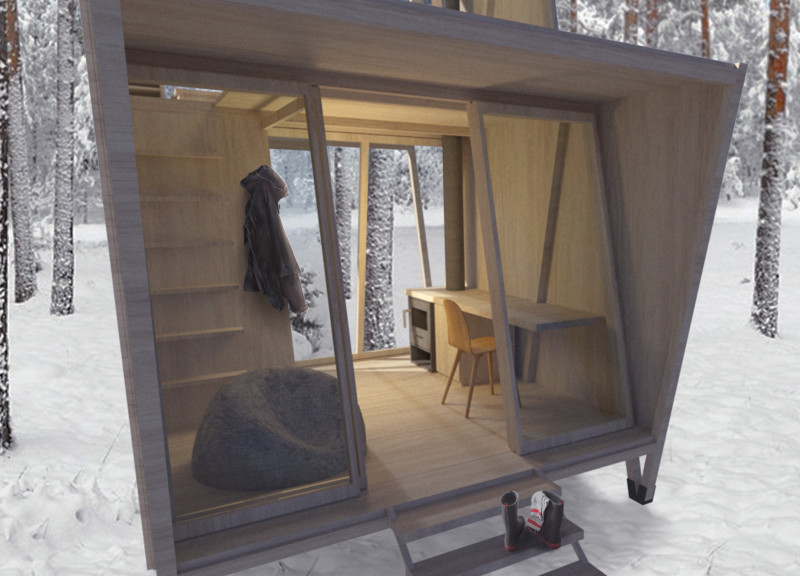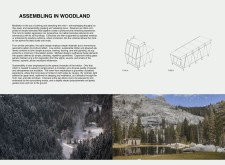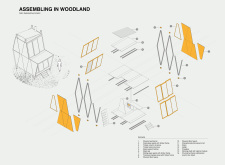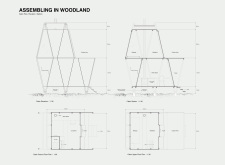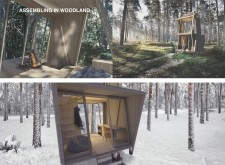5 key facts about this project
The design located in the Latvian woodland serves as a retreat focused on mindfulness and sustainability. It functions both as a living space and a place for meditation. Inspired by the practice of meditation, the cabin promotes calmness and self-reflection while connecting harmoniously with the natural surroundings.
Spatial Organization
The cabin is structured with two distinct levels that cater to different activities. The lower floor creates a sense of enclosure, with the living area protected by canopies. This setup enhances comfort and encourages a connection to the outside environment. It acts as a refuge from daily distractions, inviting residents to engage more deeply with their surroundings.
Upper Level Experience
Dedicated to sleeping and meditation, the upper level is designed to maximize natural light. Large windows on the front, rear, and sides ensure that sunlight fills the space. This thoughtful arrangement fosters a strong visual connection between the interior and the forest landscape. Occupants can enjoy the changing views of nature while feeling a sense of openness and tranquility.
Material Considerations
The choice of materials emphasizes sustainability and practicality. Low-carbon, sustainable timber and plywood are used throughout the design. These materials play a vital role in the structural elements, such as framing and wall paneling. This selection supports the goal of creating a living space that aligns with the principles of environmental responsibility.
Geometric Harmony
The design employs a clear geometric approach, leading to a modular structure that promotes straightforward navigation and interaction within the cabin. The repetition of shapes provides visual consistency and contributes to a calming environment. This arrangement encourages occupants to experience mindfulness by feeling at ease in their surroundings.
Glass panels expand the interior space outward, inviting the beauty of the Latvian woodland inside and reminding residents of nature's constant presence.


